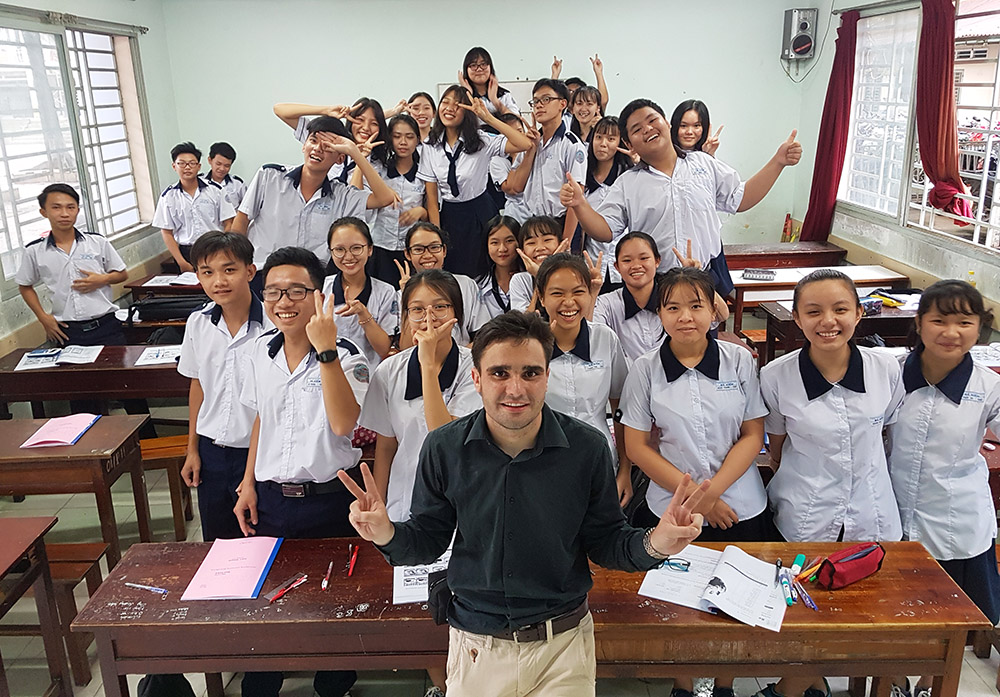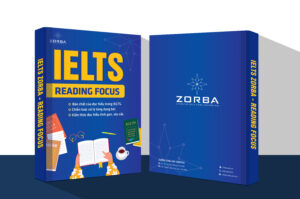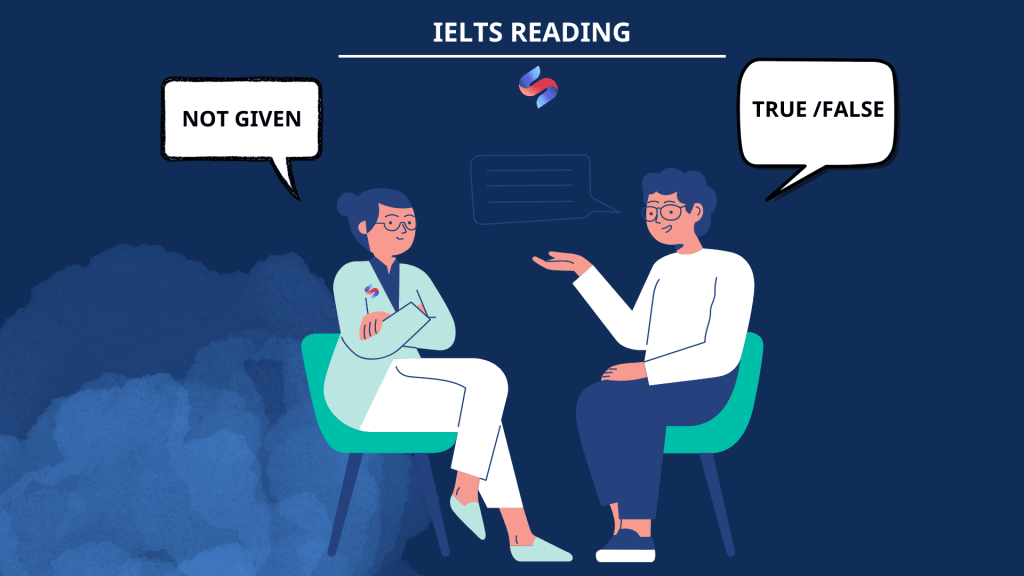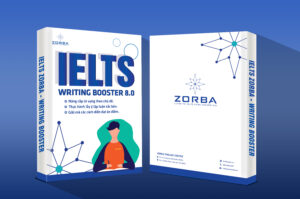
A Neuroscientist Reveals How to Think Differently
In the last decade, a revolution has occurred in the way that scientists think about the brain. We now know that the decisions humans make can be traced to the firing patterns of neurones in specific parts of the brain. These discoveries have led to the field known as neuroeconomics, which studies the brain’s secrets to success in an economic environment that demands innovation and being able to do things differently from competitors. A brain that can do this is an iconoclastic one. Briefly, an iconociost is a person who does something that others say can’t be done.
This definition implies that iconoclasts are different from other people, but more precisely, it is their brains that are different in three distinct ways: perception, fear response, and social intelligence. Each of these three functions utilizes a different circuit in the brain. Naysayers might suggest that the brain is irrelevant, that thinking in an original, even revolutionary way is more a matter of personality than brain function. But the held of neuroeconomics was born out of the realization that the physical workings of the brain place limitations on the way we make decisions. By understanding these constraints, we begin to understand why some people march to a different drumbeat.
The first thing to realize is that the brain suffers from limited resources. It has a fixed energy budget, about the same as a 40 watt light bulb, so it has evolved to work as efficiently as possible. This is where most people are impeded from being an iconoclast. For example, when confronted with information streaming from the eyes, the brain will interpret this information in the quickest way possible. Thus it will draw on both past experience and any other source of information, such as what other people say, to make sense of what it is seeing. This happens all the time. The brain takes shortcuts that work so well we are hardly ever aware of them. We think our perceptions of the world are real, but they are only biological and electrical rumblings. Perception is not simply a product of what your eyes or ears transmit to your brain. More than the physical reality of photons or sound waves, perception is a product of the brain.
Perception is central to iconoclasm. Iconoclasts see things differently to other people. Their brains do not fall into efficiency pitfalls as much as the average person’s brain. iconoclasts, either because they were born that way or through learning, have found ways to work around the perceptual shortcuts that plague most people. Perception is not something that is hardwired into the brain. It is a learned process, which is both a curse and an opportunity for change. The brain faces the fundamental problem of interpreting physical stimuli from the senses.
Everything the brain sees, hears, or touches has multiple interpretations. The one that is ultimately chosen is simply the brain’s best theory. ln technical terms, these conjectures have their basis in the statistical likelihood of one interpretation over another and are heavily influenced by past experience and, importantly for potential iconoclasts what other people say.
The best way to see things differently to other people is to bombard the brain with things it has never encountered before. Novelty releases the perceptual process from the chains of past experience and forces the brain to make new judgments. Successful iconoclasts have an extraordinary willingness to be exposed to what is fresh and different. Observation of iconoclasts shows that they embrace novelty while most people avoid things that are different.
The problem with novelty, however, is that lt tends to trigger the brain’s fear system. Fear is a major impediment to thinking like an iconoclast and stops the average person in his tracks. There are many types of fear, but the two that inhibit iconoclastic thinking and people generally find difficult to deal with are fear of uncertainty and fear of public ridicule. These may seem like trivial phobias. But fear of public speaking, which everyone must do from time to time, afflicts one-third of the population. This makes it too common to be considered a mental disorder. It is simply a common variant of human nature, one which iconoclasts do not let inhibit their reactions
Finally, to be successful iconoclasts, individuals must sell their ideas to other people. This is where social intelligence comes in. Social intelligence is the ability to understand and manage people in a business setting. ln the last decade, there has been an explosion of knowledge about the social brain and how the brain works when groups coordinate decision making. Neuroscience has revealed which brain circuits are responsible for functions like understanding what other people think, empathy, fairness, and social identity. These brain regions play key roles in whether people convince others of their ideas. Perception is important in social cognition too. The perception of someone’s enthusiasm, or reputation, can make or break a deal. Understanding how perception becomes intertwined with social decision making shows why successful iconoclasts are so rare.
Iconoclasts create new opportunities in every area from artistic expression to technology to business They supply creativity and innovation not easily accomplished by committees. Rules aren’t important to them. Iconoclasts face alienation and failure, but can also be a major asset to any organization. It is crucial for success in any field to understand how the iconoclastic mind works.
- Giải thích từ vựng
- Trace (v) /treɪs/ tìm ra nguồn gốc, chỉ ra nguyên nhân
Eg: The outbreak of food poisoning was traced to some contaminated shellfish.
- Competitor (n) /kəmˈpet̬·ɪ·t̬ər/ người cạnh tranh; đấu thủ, đối thủ
Eg: He’s a tough competitor and will probably do well in business.
Over 200 competitors entered the race.
Competitive (a)
- Iconoclast (n) /aɪˈkɒn.ə.klæst/ người đả phá những tín ngưỡng lâu đời
Eg: Rogers, an iconoclast in architecture, is sometimes described as putting the insides of buildings on the outside.
Iconoclastic (a)
- Distinct (a) /dɪˈstɪŋkt/ riêng, riêng biệt; khác biệt
Eg: The two concepts are quite distinct from each other.
Political power should be regarded as analytically distinct from economic power.
Một số từ đồng nghĩa:
- Different i like her haircut – it’s different!
- Dissimilar the twins may look alike, but they are quite dissimilar when it comes to personality.
- Diverse london is a culturally diverse city.
- Heterogeneous they tested a heterogeneous population.
- Perception (n) /pəˈsep.ʃən/ sự nhận thức
Eg: We have to change the public’s perception that money is being wasted.
These photographs will affect people’s perceptions of war.
Perceive (v)
- Naysayer (n) /ˈneɪˌseɪ.ər/ người thường xuyên tham gia vào việc phàn nàn quá mức
Eg: He ignored the naysayers and persevered.
- Irrelevant (a) /ɪˈrel.ə.vənt/ không thích đáng; không thích hợp
Eg: These documents are largely irrelevant to the present investigation.
Making a large profit is irrelevant to us – the important thing is to make the book available to the largest possible audience.
- Revolutionary (a) /ˌrev.əˈluː.ʃən.ər.i/ mang tính cách mạng (hoàn toàn mới và có ảnh hưởng lớn)
Eg: Penicillin was a revolutionary drug.
- Constraint (n) /kənˈstreɪnt/ sự đè nén, sự kiềm chế
Eg: The constraints of politeness wouldn’t allow her to say what she really thought about his cooking.
- Impede (v) /ɪmˈpiːd/ làm trở ngại, ngăn cản, cản trở
Eg: Although he’s shy, it certainly hasn’t impeded his career in any way.
Shortages of medicine were impeding the effort to control diseases.
- Interpret (v) /ɪnˈtɜː.prɪt/ giải thích, làm sáng tỏ
Eg: It’s difficult to interpret these statistics without knowing how they were obtained.
A jury should not interpret the silence of a defendant as a sign of guilt.
Any change of policy will be interpreted as a sign of weakness.
Interpretation (n)
- Shortcut (n) /ˈʃɔːt.kʌt/ lối tắt
Eg: I know a shortcut to town.
- Central (a) /ˈsen.trəl/ chính, chủ yếu, trung tâm
Eg: Community involvement is central to our plan.
I failed to grasp the film’s central concept.
Eugenics was the central, and most controversial, part of his social philosophy.
The central character is a malevolent witch out for revenge.
- Efficiency (n) /ɪˈfɪʃ.ən.si/ năng suất, hiệu suất
Eg: What is so impressive about their society is the efficiency of the public services.
Sweden has shown the way forward on energy efficiency.
- Pitfall (n) /ˈpɪt.fɔːl/ cạm bẫy
Eg: The store fell into one of the major pitfalls of small business, borrowing from suppliers by paying bills late.
Một số từ đồng nghĩa:
- Problem what’s the problem here?
- Difficulty the company is having some financial difficulties at the moment.
- Trouble we’ve had a lot of trouble with the new computer system.
- Hitch the ceremony went without a hitch.
- Glitch we’ve had a few technical glitches, but i’m confident we’ll be ready on time.
- Hurdle getting a work permit is only the first hurdle.
- Plague (v) /pleɪɡ/ gây tai hoạ cho, gây tai hại cho, gây tệ hại cho, gây phiền toái
Eg: Financial problems have been plaguing their new business partners.
My shoulder’s been plaguing me all week.
- Hardwired (a) /hɑːdˈwaɪəd/ kết nối, được lập trình sẵn
Eg: Humans are hardwired to love fattening foods.
Many aspects of morality appear to be hardwired in the brain.
- Conjecture (n) /kənˈdʒek.tʃər/ sự phỏng đoán, sự ước đoán
Eg: There’s been a lot of conjecture in the media recently about the marriage.
- Bombard (v) /bɒmˈbɑːd/ tấn công tới tấp, đưa dồn dập
Eg: We have been bombarded with letters of complaint.
We are bombarded daily with propaganda about what we should eat.
- Novelty (n) /ˈnɒv.əl.ti/ vật mới lạ, vật khác thường/ tính mới lạ
Eg: Tourists are still a novelty on this remote island.
- Impediment (n) /ɪmˈped.ɪ.mənt/ sự trở ngại, sự ngăn trở, điều làm trở ngại, điều ngăn trở, vật chướng ngại
Eg: In a number of developing countries, war has been an additional impediment to progress.
The lack of funds is a major impediment to research.
- Ridicule (n) /ˈrɪd.ɪ.kjuːl/ sự nhạo báng, sự chế nhạo, sự giễu cợt
Eg: She was treated with scorn and ridicule by her colleagues when she applied for the job.
The president was becoming an object of ridicule.
- Trivial (a) /ˈtrɪv.i.əl/ thường, bình thường, tầm thường, không đáng kể, không quan trọng
Eg: I don’t know why he gets so upset about something so trivial.
Sexual harassment in the workplace is not a trivial matter.
- Phobia (n) /ˈfəʊ.bi.ə/ ám ảnh sợ
Eg: She refused the injection because she had a phobia about needles.
- From time to time: thỉnh thoảng, đôi khi
Eg: I still think of her from time to time.
- Intertwined (a) /ˌɪn·tərˈtwɑɪnd/ quấn vào nhau, bện vào nhau, gắn bó với nhau
Eg: Our fates seemed to be intertwined.
- Alienation (n) /ˌeɪ·li·əˈneɪ·ʃən / sự xa lìa, sự ghét bỏ, sự chán ghét; mối bất hoà
Eg: The alienation of young adults has lowered the number of people who vote.
- Asset (n) /ˈæs.et/ tài sản, của cải, vật quý
Eg: He’ll be a great asset to the team.
Knowledge of languages is a real asset in this sort of work.
As a footballer his great asset was his calm, phlegmatic manner.
- Conscious (a) /ˈkɒn.ʃəs/ biết rõ, thấy rõ
Eg: I think she’s very conscious of being the only person in the office who didn’t have a university education.
My tooth doesn’t exactly hurt, but i’m conscious of it all the time.
Một số từ đồng nghĩa:
- Aware we are aware that some people are getting frustrated.
- Cognizant most people are cognizant of the fact that some pollsters ask leading questions.
- Know we know that people who are stressed out look haggard.
- Receptive (a) /rɪˈsep.tɪv/ dễ tiếp thu, dễ lĩnh hội
Eg: The government is not receptive to the idea of a freedom of information act.
Một số từ đồng nghĩa:
- Open-minded the campaign attracts progressive, open-minded people.
- Tolerant they are very tolerant of different religions in that country.
- Broad-minded travel helps you become more broad-minded.
- Shy (a) /ʃaɪ/ nhút nhát, bẽn lẽn, e thẹn
Eg: He was too shy to ask her to dance with him.
Underneath that shy exterior, she’s actually a very warm person.
Shyness (n)
- Overcome (v) /ˌəʊ.vəˈkʌm/ vượt qua, khắc phục (khó khăn…)/ chiến thắng
Eg: Eventually she managed to overcome her shyness in class.
20,000 demonstrators sang “we shall overcome” as they marched through washington.
- Embarrassment (n) /ɪmˈbær.əs.mənt/ sự lúng túng, sự ngượng ngịu; tình trạng lúng túng, tình trạng bối rối
Eg: My parents are an embarrassment to me!
He rustled his papers to hide his embarrassment.
- Rejection (n) /rɪˈdʒek.ʃən/ sự không chấp nhận, sự bác bỏ, sự từ chối
Eg: most people find rejection hard to deal with.
- Luyện tập
Bài 1: Chọn từ trong khung để hoàn thành các câu bên dưới
| conjecture | novelty | constraints | conscious | revolutionary |
| embarrassment | impeded | time | alienation | efficiency |
- The rate differed region by region, and changed from time to ……………………..
- The new policy resulted in the ……………….. of many voters.
- He gradually became ………………… of the fact that everyone else was wearing a suit.
- Nobody spoke for at least five minutes and Rachel squirmed in her chair with …………………….
- The truth of his ……………………. was confirmed by the newspaper report.
- Flexible schedules, once a ……………………………, are now more commonplace.
- She got through her work with speed and ………………………
- Work on the building was …………………….. by severe weather.
- The 20th century brought about …………………. changes in our lifestyles.
- Financial …………………. on the company are preventing them from employing new staff.
Bài 2: Chọn đáp án đúng để điền vào chỗ trống
- That evidence is ……………….. to the case. A. irrelevant B. revolutionary
- This revision was apparently not enough to please the ……………. among the courtly audience. A. constraints B. naysayers
- There is a general …………………. that exams are becoming easier to pass. A. efficiency B. perception
- She has ………………………. her family history back to the seventeenth century. A. traced B. impeded
- Who knows what kind of ………………….. they’re going to run into. A. pitfalls B. conjectures
- The team has been …………………… by injury this season. A. overcomed B. plagued
- Children can suffer from a sense of ……………………… when a parent leaves the home. A. embarrassment B. rejection
- He is the oldest ……………………. in this year’s London Marathon. A. competitor B. iconoclast
- She was studying lung cancer, as ………………………. from other types of cancer. A. irrelevant B. distinct
- The plan was designed to help women and minorities ……………. discrimination in the workplace. A. overcome B. plague
- Anxiety is a ………………… response that everyone experiences. A. hardwired B. central
- He did not want to be identified, fearing the ………………… of his friends. A. novelty B. ridicule
- Their boycott of the talks constitutes a serious …………… to peace negotiations. A. impediment B. conjecture
- For someone with social ……………………., a conversation with a neighbour can cause a paralyzing sense of dread. A. ridicule B. phobia
- The hammer strikes sideways, it strikes something other than that which the ……………….. wanted to break. A. perception B. iconoclast
- It was a badly researched documentary which glossed over important questions while pointing up …………………… ones. A. trivial B. hardwired
- Over the years Shinto and Buddhism have ……………… considerably. A. intertwined B. revolutionary
- The ……………. argument of the book is that some of the plays were not written by Shakespeare. A. irrelevant B. central
- He ……………………. her comments as an implicit criticism of the government. A. interpreted B. impeded
- Don’t use …………………. to solve the problem, or the answer is likely to be wrong. A. efficiencies B. shortcuts
- We’re all constantly ……………….. with television ads. A. bombarded B. overcame
- He was very ……………………. to the idea. A. conscious B. receptive
- Her knowledge and experience would make her a priceless……….. to the team . A. asset B. alienation
- Tom is very extrovert and confident while Katy’s ……………….. and quiet. A. shy B. conscious
- LUYỆN TẬP
Bài 1:
1.time 2. alienation 3. conscious 4. embarrassment 5. conjecture
- novelty 7. efficiency 8. impeded 9. revolutionary 10. constraints
Bài 2:
1.A 2. B 3. B 4. A 5. A
- B 7. B 8. A 9. B 10. A
- A 12. B 13. A 14. B 15.B
- A 17. A 18. B 19. A 20.B
- A 22. B 23.A 24.A














